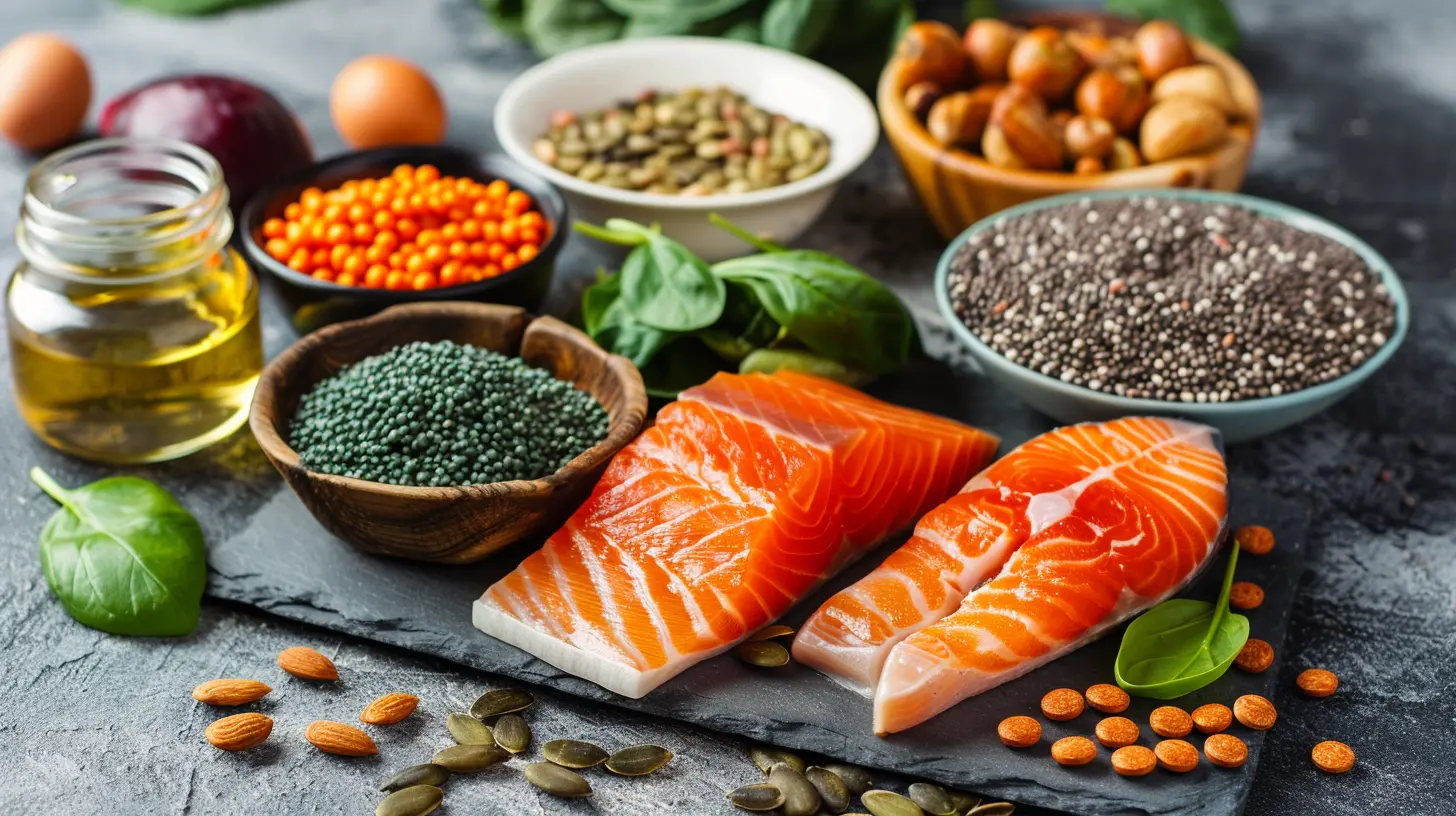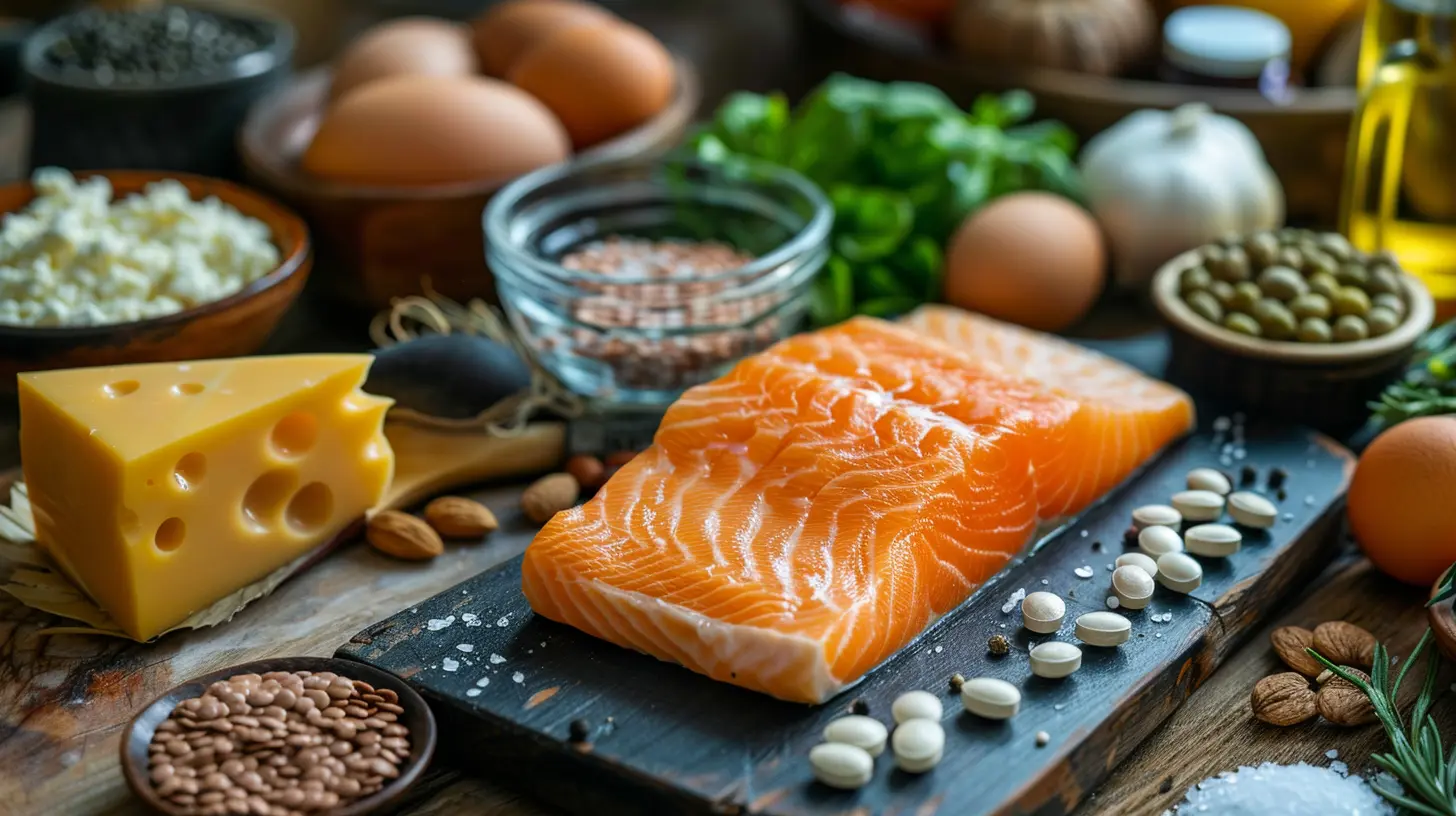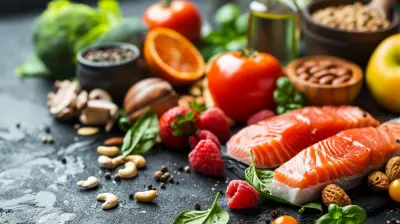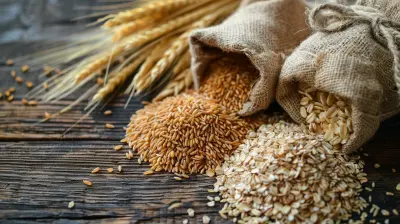How to Manage Cholesterol Without Medication
14 October 2025
Let’s face it—cholesterol isn’t exactly the hot topic people love to bring up at dinner parties. But maybe it should be, especially since it plays such a crucial role in your health. If your doctor recently told you your cholesterol numbers are creeping up, chances are they also brought up medication. But here’s the thing: popping a pill isn’t the only way to manage cholesterol.
Believe it or not, plenty of folks have lowered their cholesterol naturally, just by making some smart lifestyle changes. And no, it doesn’t involve going on a rabbit-food-only diet or running marathons every weekend. Managing cholesterol without medication is totally doable—and I’m going to show you how.
So, grab your favorite beverage, get comfy, and let’s talk about how to kick cholesterol’s butt, naturally.
What Is Cholesterol, Really?
Before we dive into the how-to, let’s clear the air about cholesterol. It’s not all bad. In fact, your body needs some cholesterol to function properly. It helps build cell membranes, make hormones, and digest fat. The issue arises when there’s too much of the “bad” cholesterol (LDL) floating around in your bloodstream.When LDL cholesterol builds up in your arteries, it forms plaque—that sticky gunk that clogs your blood vessels and increases your risk of heart disease and stroke. Then there’s HDL cholesterol, the “good” kind that helps sweep away LDL like a cleanup crew.
Your goal? Lower your LDL and raise your HDL—all without a prescription pad involved.
Can You Really Lower Cholesterol Naturally?
Absolutely. In fact, many doctors will first recommend lifestyle changes to see if those alone can do the trick. And quite often, they work. The trick isn’t just making changes—it’s making the changes that stick.So, let’s break down the practical stuff—what you can do to get your cholesterol in check, the natural way.
1. Rethink Your Plate
Let’s start with the low-hanging fruit—your diet.🍳 Say Goodbye to Trans Fats
You know those hydrogenated oils found in packaged cookies, margarine, and processed snacks? They’re not just empty calories—they actively raise your LDL and lower your HDL. Think of them as the villain duo of your cardiovascular system. Cut them out completely.🥑 Embrace Healthy Fats Instead
Not all fats are bad—some are actually great for your heart. We're talking about monounsaturated fats (like those in olive oil and avocados) and polyunsaturated fats (found in nuts, seeds, and fatty fish). These can help lower LDL levels while boosting your HDL—the best of both worlds.🌾 Fiber Is Your New Best Friend
Want to sweep cholesterol out of your system like a broom? Focus on soluble fiber. Foods like oats, lentils, apples, and citrus fruits bind to cholesterol in your digestive tract and prevent it from entering your bloodstream. Think of fiber as a sponge soaking up the bad stuff before it causes trouble.🥦 Load Up on Plant-Based Foods
Plants are naturally cholesterol-free. The more you fill your plate with veggies, fruits, whole grains, and legumes, the better your cholesterol profile is likely to be. Aim for color—greens, oranges, purples, reds. Each shade offers its own heart-healthy benefits.
2. Move That Body
You don’t have to become a gym rat, but getting your body in motion on a regular basis is huge when it comes to managing cholesterol.🏃♂️ Why Exercise Matters
Exercise increases the good cholesterol (HDL) and helps lower the bad (LDL). It also helps you maintain a healthy weight—which, you guessed it, further improves your cholesterol levels.🚶 Start Small, Stay Consistent
Going from couch potato to marathon runner overnight isn’t sustainable for most of us. Start with 30 minutes of brisk walking five days a week, or even break it into three 10-minute sessions if you're short on time. Other great options include swimming, biking, or dancing your heart out in your living room.🏋️ Mix It Up
For the best results, combine cardio with resistance training. Think of cardio as your cholesterol-sweeping service and strength training as your muscle-building insurance policy.3. Ditch the Cigarettes and Manage Booze Wisely
Sorry to be the fun police, but smoking and excessive drinking are major cholesterol-complicators.🚬 Quit Smoking (For Real This Time)
Smoking lowers your good HDL cholesterol and damages your blood vessels—making it easier for LDL to build up. Within weeks of quitting, your HDL levels start to improve. Plus, your risk of heart disease drops dramatically.🍷 Sip Smarter
Moderate alcohol (especially red wine) has been shown to increase HDL cholesterol. But—and this is important—moderation means one drink a day for women, two for men. Overdo it, and you’re doing more harm than good. So, if you don’t drink, there’s definitely no need to start.4. Keep Stress in Check
Stress may not directly raise your cholesterol, but it can lead to behaviors that do—like stress-eating, skipping workouts, or lighting up a cigarette.🧘♀️ Mind Over Matter
Practices like yoga, deep breathing, meditation, or even a daily walk in nature can help you stay centered. The calmer you are, the better choices you’re likely to make for your health.😴 Don’t Sleep on Sleep
Sleep is when your body heals and resets, including your metabolism and cholesterol levels. Aim for 7–9 hours of quality sleep per night. If you’re snoring like a chainsaw and waking up groggy, it might be worth checking for sleep apnea—another sneaky heart risk.5. Watch Your Weight (But Don’t Obsess)
Carrying extra pounds—especially around your middle—can drive up your LDL and triglycerides while lowering your HDL.🥗 Small Changes, Big Wins
You don’t have to drop 50 pounds overnight. Even losing just 5–10% of your body weight can make a serious impact on cholesterol. Focus on sustainable habits, not crash diets. This is a marathon, not a sprint.6. Consider Natural Supplements (With Caution)
Some people turn to supplements to help bridge the gap. While not a magic pill, a few natural options have shown some promise.🌿 Popular Supplements for Cholesterol Support
- Plant Sterols and Stanols – Found in fortified foods and supplements, they block cholesterol absorption.- Soluble Fiber Supplements – Like psyllium husk or glucomannan, great if your diet needs a fiber boost.
- Omega-3 Fatty Acids – Fish oil or algae-based options can lower triglycerides and support heart health.
- Red Yeast Rice – Natural source of statin-like compounds, but use caution—it can act like a medication and should be discussed with your healthcare provider.
Always run supplements by your doc before diving in. Natural doesn’t always mean safe or effective for everyone.
7. Regular Blood Work: The Truth-O-Meter
You can’t manage what you don’t measure. Your cholesterol levels won't send you a text message when they spike—so regular checkups are essential.🧪 How Often Should You Test?
If you’re working on bringing your numbers down naturally, get your cholesterol tested every 3–6 months. That way, you can track progress and tweak your plan as needed.A Quick Recap: Your Natural Cholesterol-Management Playbook
Here’s your simple seven-step strategy to manage cholesterol the medication-free way:1. Eat smart – more fiber, healthy fats, and plant-based foods.
2. Move daily – walk, dance, swim—just get active.
3. Quit smoking – no ifs, ands, or butts.
4. Drink responsibly – sip, don’t slosh.
5. Stress less, sleep more – your heart will thank you.
6. Consider supplements carefully – only with doctor approval.
7. Test often – track your wins and adjust as needed.
When Lifestyle Isn’t Enough
Let’s be real—sometimes, even when you do everything right, your cholesterol numbers remain stubborn. Maybe it’s genetics, age, or other health conditions at play. That’s why it’s crucial to work with your healthcare provider. They're your co-pilot on this health journey.If lifestyle changes get you close, but not quite where you need to be, don’t feel bad. Medication can be a helpful tool. But the healthier your habits, the less reliant you'll be on meds—and that’s a win in itself.
Final Thoughts
Managing cholesterol naturally isn’t about being perfect—it’s about being consistent. And don’t beat yourself up if you slip occasionally. Remember: it’s not a sprint, it’s a lifestyle shift. You’re investing in the long-term health of your heart, brain, and whole body.So if you were wondering whether it’s possible to lower cholesterol without medication, the answer is: heck yes. You just need the right tools, the right mindset, and a little determination. And now? You’ve got all three.
all images in this post were generated using AI tools
Category:
Heart HealthAuthor:

Arthur McKeever
Discussion
rate this article
1 comments
Zayla McKee
This article offers valuable insights on managing cholesterol naturally, emphasizing lifestyle changes like diet, exercise, and stress management. A proactive approach can significantly improve heart health without the need for medication. Great read!
October 15, 2025 at 3:36 AM

Arthur McKeever
Thank you for your kind words! I'm glad you found the insights on natural cholesterol management helpful. Healthy lifestyle changes can truly make a difference!


